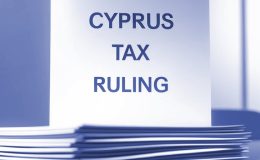Cyprus Deemed Distribution Rules
The “deemed distribution” rules are an important aspect of the Cypriot tax system, particularly in the context of tax planning and compliance for companies and their shareholders. These rules are designed to prevent the deferral of tax on profits retained within a company rather than distributed as dividends to shareholders.
The primary goal of the deemed distribution rules is to ensure that tax is collected on profits that have not been actually distributed as dividends by a company to its shareholders, but could have been distributed.
Overview of Deemed Distribution
The deemed distribution rules were introduced in Cyprus with the Income Tax Law of 2002. These provisions are designed to ensure that companies distribute a portion of their profits as dividends, thereby subjecting them to dividend taxation at the shareholder level. The primary goal is to prevent tax deferral strategies that could arise when profits are retained indefinitely within a company.
Legal Framework
The relevant legislative authority on deemed distribution can be found in Article 3(1)(g) of the Income Tax Law of 2002, as amended. The rules apply to profits attributed to the tax years ending after January 1, 2003, and concern companies that are tax residents of Cyprus, including those that are not domiciled in Cyprus but have local tax liability.
Mechanism of Deemed Distribution
The deemed distribution rules in Cyprus are a critical component of the tax structure designed to ensure that companies do not indefinitely defer the distribution of dividends to their shareholders, thus avoiding or delaying related tax payments. These rules are particularly relevant for Cypriot tax-resident companies and their shareholders. Here is a more detailed explanation, including an example, to illustrate how these rules function:
Detailed Explanation of Deemed Distribution Rules
- Scope and Trigger: The rules apply to Cypriot tax-resident companies. If such a company does not distribute at least 70% of its after-tax profits within two years following the end of the relevant tax year, it is assumed under these rules that a deemed distribution of 70% of these profits has occurred.
- Calculation Base: The deemed distribution is calculated on the profits after the deduction of corporate tax and any other direct taxes. It is important to note that the profits considered for deemed distribution include not just cash profits but also other reserves that have been created from the profits of the relevant year. These reserves could be in forms such as retained earnings or general reserves allocated from the profit.
- Tax Application: Once a deemed distribution is calculated, it is subject to the Special Defence Contribution (SDC) at the rate applicable to dividends. Currently, this rate is set at 17% for tax residents of Cyprus. This SDC is imposed because the assumption is that the profits have been made available to the shareholders, akin to an actual dividend payment.
Example to Illustrate Deemed Distribution
Consider a Cypriot company, ABC Ltd, which made a net profit of €100,000 in the tax year 2021 after corporate tax and other direct taxes. If by the end of 2023, ABC Ltd has not distributed at least €70,000 (which is 70% of €100,000), the deemed distribution rules will apply.
- Deemed Distribution Calculation: 70% of €100,000 = €70,000
- SDC Liability: 17% of €70,000 = €11,900
In this scenario, ABC Ltd would be considered to have distributed €70,000 to its shareholders at the end of 2023, and would therefore incur an SDC tax liability of €11,900, which must be paid to the Cyprus tax authorities. This tax would typically be collected from the shareholders in proportion to their shareholding percentages, assuming they are tax residents of Cyprus.
Exemptions and Exceptions
Several key exemptions apply to the deemed distribution rules:
- Non-resident shareholders: Profits attributed to shareholders who are not tax residents of Cyprus are exempt from deemed distribution.
- Non-Dom Shareholders: If shareholders are non-domiciled but tax residents, they are exempt from SDC on dividends and therefore would not be liable for SDC on deemed distributed dividends.
- Profits used for investment: Profits that are reinvested in assets used in the business, including the acquisition of fixed assets for business use, are not subject to deemed distribution.
- Group companies: Profits transferred to other companies within the same group may be exempt if certain conditions are met.
Implications for Corporate Strategy
The implementation of deemed distribution rules necessitates careful tax planning for companies operating in Cyprus. Companies must evaluate their dividend policies and consider the timing of dividend distributions to manage their tax liabilities effectively. Strategic reinvestment of profits can also be a viable method to manage the impact of these rules, provided that the reinvestments qualify for exemptions under the legislation.
Compliance and Reporting
Compliance with the deemed distribution rules requires accurate accounting and timely reporting. Companies must ensure that their financial statements accurately reflect all profits and that distributions are properly documented. Additionally, companies must be vigilant in applying the correct tax rates and in reporting deemed distributions on their tax returns to avoid penalties for non-compliance.
The deemed distribution rules in Cyprus are an essential consideration for both local and international businesses operating in the region. For businesses operating within this framework, it is advisable to maintain a proactive approach to dividend policy and profit distribution to leverage the tax efficiencies available under the Cypriot legal system.
At Chambers & Co, our team of experienced lawyers is well-versed in the intricacies of Cyprus tax law, including the deemed distribution rules. We provide comprehensive legal services tailored to ensure that our clients not only comply with these regulations but also optimise their financial strategies in light of them. Our lawyers specialise in advising on dividend distribution policies to mitigate tax liabilities effectively, ensuring that your company benefits from the most favourable tax treatments available under Cyprus law.







